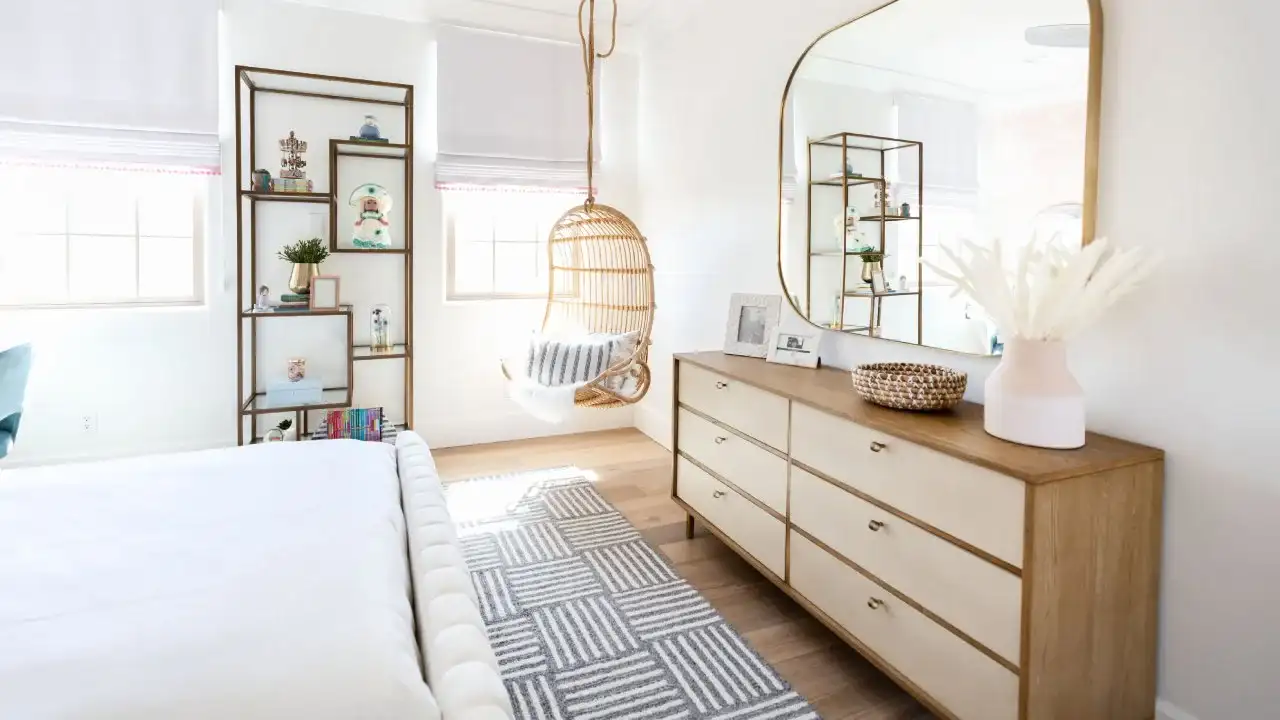The placement of mirrors in your home isn’t just about aesthetics, it can have a profound impact on your well-being, particularly in the bedroom. Mirrors are often used to brighten spaces and make rooms appear larger, but when placed facing the bed, they may introduce various challenges. If you’ve ever wondered, is it bad to have a mirror facing your bed? The answer depends on several factors, including cultural beliefs, psychological effects, and practical concerns.
In this article, we’ll explore 7 compelling reasons why you should never put a mirror facing your bed and provide tips on better mirror placement for a harmonious and restful environment.
1. Mirrors Can Disrupt Your Sleep
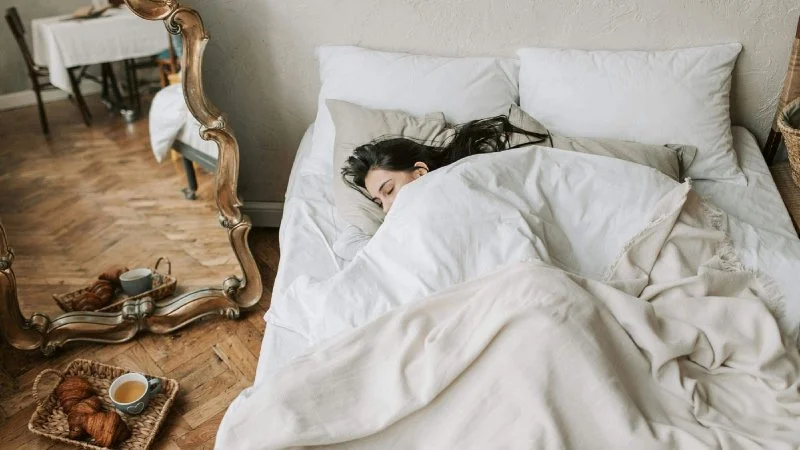
One of the most significant drawbacks of a mirror facing bed is its potential to disrupt sleep. Mirrors reflect light, and even a dim source such as streetlights, moonlight, or the glow of electronic devices can bounce off the mirror and disturb your rest. This is particularly troublesome if you’re sensitive to light, as reflections can trick your brain into staying alert.
Additionally, mirrors amplify movement. Shadows from trees, the flicker of a television, or even a pet moving around the room can create visual distractions. These small disturbances may prevent you from falling asleep or cause you to wake up during the night.
How to Fix It: Avoid placing large mirrors directly opposite the bed. If you already have one, cover it at night with a curtain or decorative cloth to minimize reflections.
2. Mirrors Reflect Negative Energy

According to spiritual and cultural beliefs, mirrors can reflect and amplify energy both positive and negative. If there is unresolved tension, stress, or negative emotions in the room, a mirror facing the bed could intensify these feelings. This may lead to restless sleep or even unsettling dreams.
Some traditions, such as feng shui, suggest that mirrors can trap and redirect energy, causing imbalance in the room. While this may not have a scientific basis, many people report feeling uneasy or anxious when sleeping in front of a mirror.
How to Fix It: To maintain a peaceful energy flow in your bedroom, ensure mirrors are placed strategically to reflect light or decor, rather than directly facing your bed.
3. Mirrors Can Symbolize Duality and Create Unease

Mirrors are often associated with self-reflection and duality. Seeing your own reflection while lying in bed can feel unsettling, as it may evoke feelings of being observed or judged. This symbolic representation of duality can create a sense of tension, preventing you from fully relaxing.
Psychologically, having a mirror in your direct line of sight can lead to self-consciousness. You may find yourself unintentionally fixating on your appearance or movements, making it harder to unwind.
How to Fix It: Position mirrors so they don’t reflect your sleeping area. If possible, place them on sidewalls or in areas where they are not visible from the bed.
4. Disturbs the Flow of Chi in Feng Shui
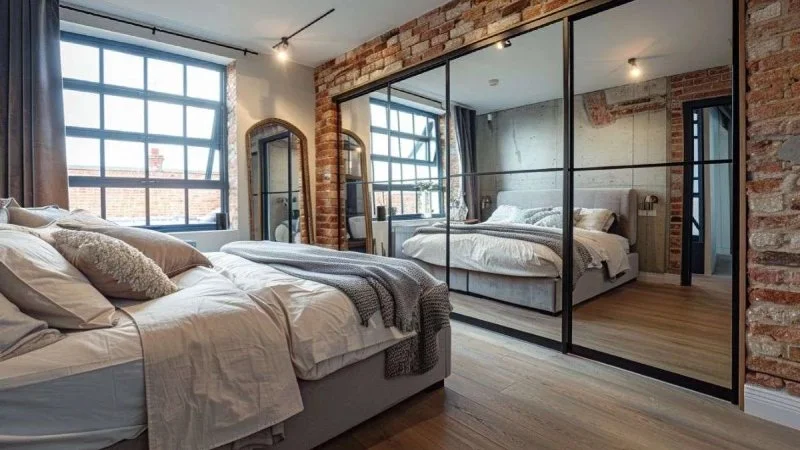
Feng shui, the ancient Chinese practice of arranging spaces for optimal energy flow, cautions against placing mirrors directly facing the bed. In feng shui, energy or “chi” flows throughout a room, and mirrors are believed to disrupt this natural circulation.
When a mirror faces the bed, it can scatter or block the flow of chi, leading to imbalances in energy. This disruption can manifest as poor sleep, low energy levels, or a sense of unease in the bedroom.
How to Fix It: Follow feng shui principles by placing mirrors where they can enhance light or views without reflecting the bed. Avoid mirrors near windows or doors that might channel disruptive energy.
5. Creates Privacy Issues
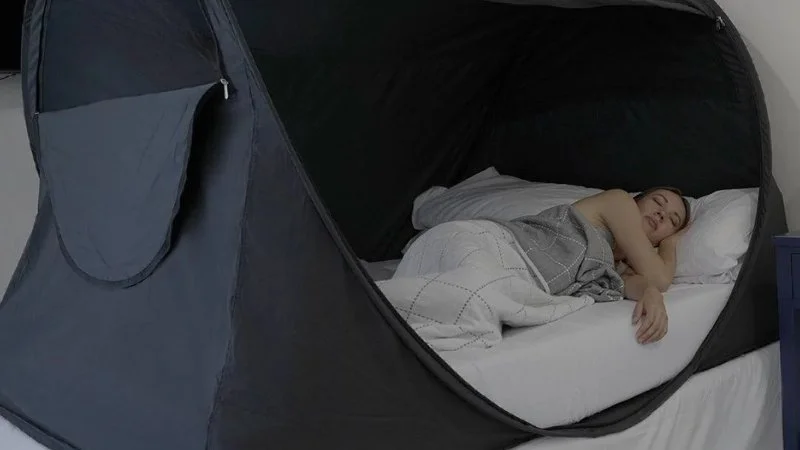
A mirror facing bed can compromise the sense of privacy that a bedroom should provide. This is especially true if your bed is visible from a doorway or window. The constant reflection of yourself and your surroundings may create a feeling of vulnerability or exposure.
Psychologically, seeing your reflection in intimate moments or while changing clothes can make you feel less secure in your personal space, detracting from the bedroom’s purpose as a sanctuary.
How to Fix It: Opt for smaller mirrors or place them on interior walls where they don’t reflect private areas.
6. Amplifies Light and Movement
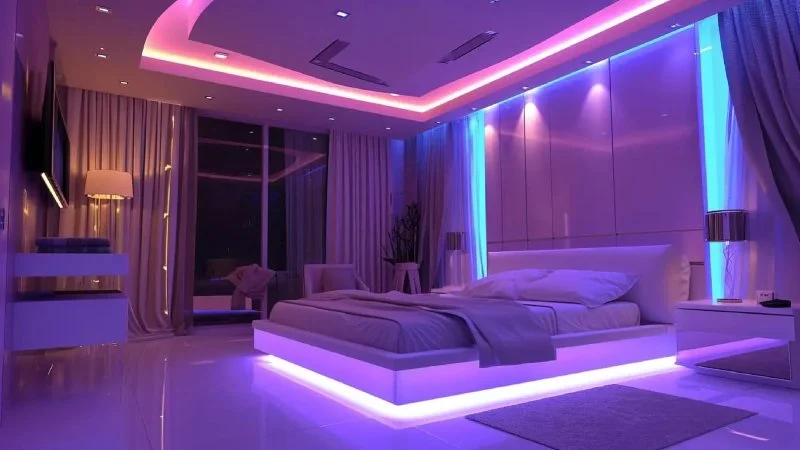
Mirrors are excellent at amplifying light, but in a bedroom, this can work against you. Reflections from headlights, streetlights, or even a passing car can create sudden flashes of light that may disrupt your sleep cycle.
Moreover, mirrors can magnify any movement in the room, such as the swaying of curtains, a fan’s rotation, or even a partner shifting in bed. This constant stimulation can make it challenging to achieve deep, restful sleep.
How to Fix It: Use blackout curtains or position mirrors away from windows and other reflective surfaces.
7. Psychological Discomfort

For some, the mere presence of a mirror facing the bed can create psychological discomfort. At night, catching a glimpse of your reflection in the dark might feel eerie or unsettling. This effect, often referred to as the “uncanny valley,” can trigger a stress response, making it harder to relax.
In addition, mirrors facing each other or reflecting large, open spaces may evoke a sense of infinity, which can feel overwhelming or disorienting.
How to Fix It: Reduce the size and placement of mirrors in the bedroom, keeping them functional rather than decorative.
Where Should Mirrors Go in the Bedroom?
While mirrors in the bedroom are not inherently bad, their placement is crucial. To avoid negative effects while still enjoying the benefits of mirrors, consider these tips:
- Sidewalls: Place mirrors on walls perpendicular to the bed to reflect light without being in direct view.
- Inside Closets or Wardrobes: Install mirrors on the interior of wardrobe doors for functionality without visual clutter.
- Above Dressers: Position mirrors above dressers or vanities where they serve a purpose but don’t reflect the bed.
- Opposite Windows: Reflect natural light into the room by placing mirrors opposite a window, enhancing brightness without disrupting sleep.
Conclusion
Is it bad to have a mirror facing your bed? Yes, it can be, for various reasons. Mirrors can disrupt sleep, reflect negative energy, amplify light and movement, and create a sense of unease. They may also disturb the flow of energy in feng shui and compromise privacy.
To create a peaceful and restful bedroom, it’s best to carefully consider the placement of mirrors. By positioning them thoughtfully, you can enjoy their decorative and functional benefits without sacrificing comfort and tranquility. Remember, your bedroom should be a haven of rest, not a source of distraction.
